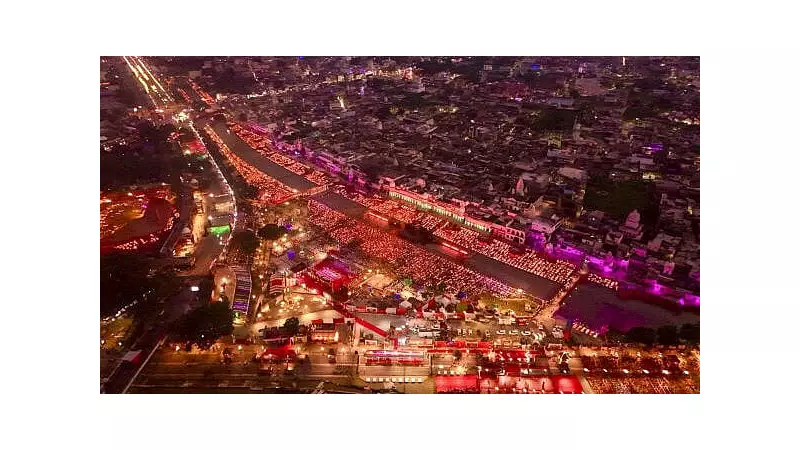
On the festive evening of Diwali, Delhi's air quality took a severe hit as celebrations involving fireworks pushed pollution levels to dangerous heights across the national capital. The much-anticipated festival of lights brought with it a familiar environmental crisis that residents have come to dread annually.
Widespread Deterioration Across Monitoring Stations
The Central Pollution Control Board (CPCB) data revealed a disturbing pattern as evening descended on Delhi. A staggering 24 air quality monitoring stations slipped into the 'poor' to 'very poor' categories, painting a grim picture of the capital's atmospheric conditions. The systematic decline began around 7 pm, coinciding exactly with the peak hours of Diwali celebrations.
Real-time Data Tells a Worrying Story
According to the CPCB's live monitoring network, the Air Quality Index (AQI) readings told a consistent story of deterioration across multiple locations. Stations including Anand Vihar, Punjabi Bagh, RK Puram, and Jahangirpuri all showed significant spikes in pollution parameters as the night progressed.
Fireworks Defy Restrictions
Despite the Delhi government's imposed ban on firecrackers and numerous awareness campaigns urging citizens to opt for a greener Diwali, the sound of explosions and sight of fireworks illuminating the sky became increasingly common as darkness fell. The familiar pattern of restrictions being openly flouted repeated itself, much to the dismay of environmental authorities.
Meteorological Conditions Worsen the Crisis
Compounding the problem were the unfavorable weather conditions typical for this time of year. Low wind speeds and dropping temperatures created a perfect storm for pollutants to accumulate and linger close to the ground, rather than dispersing into the atmosphere.
Health Advisory Ignored
Medical experts and environmental agencies had issued repeated health advisories, particularly warning vulnerable groups including children, elderly citizens, and those with pre-existing respiratory conditions to take extra precautions. The rapid deterioration of air quality on Diwali evening made these warnings particularly relevant.
The Morning After Outlook
Environmental monitoring agencies had predicted that the combination of fireworks and unfavorable weather conditions would lead to a significant accumulation of pollutants overnight. The concern remained high about what the morning air quality readings would reveal after a full night of pollution buildup without adequate dispersion.
The situation highlighted the ongoing challenge of balancing cultural traditions with environmental responsibility, a debate that grows more urgent with each passing year as Delhi continues to grapple with its air pollution crisis.





